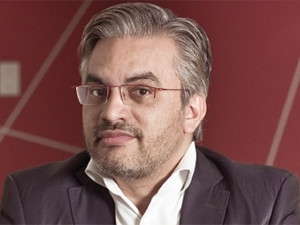
In October 2015, Microsoft held an Open Data Hackathon in partnership with the Department of Public Service and Administration and in line with the ideals of a Global Open Government. The hack was all about being open - open data, open source and open government - and every aspect of the event was focused on tapping into these ideals.
"It took us around two months to plan for this two-day event," says Riedwaan Bassadien, open source lead at Microsoft South Africa. "We briefed a collection of hackers, organised a venue and set about creating an experience that was designed specifically to cultivate innovation and inventiveness."
Teams were given the challenge: find ways of working with the data to develop a robust solution within 48 hours. The results were impressive and four teams really stood out from the hacking crowd. Team Baby, consisting of Etienne Olivier, Germari Steenkamp and Brad Botha, developed a Twitter Bot that sends information from census data in random tweets that are written in a funny and informative way. They also constructed a microsite that gives users the opportunity to select two topics of interest and, using the census data, gain a visual representation of the information based on the correlation between these two topics.
Says Steenkamp, Native VMlL-user experience designer: "Our idea is based on using Census 2011 data, which we wanted to present in a new way that's easy to understand and is interesting to read."
The Twitter Bot has the potential to give government a tool that can regularly communicate with its citizens and provide them with fun facts about the country and its people. The microsite adds even more value by giving readers a visual representation of data, reducing its complexity and offering real insight into the lives of South Africans.
Find it for free
Team Datanator, made up of Alex van Rensburg, Daniel de Kock, Jarryd Bekker, Ilsa Grabe and Rick Treweek, created a portable device called Fati. This gizmo can potentially fi t onto a keychain and is capable of both identifying and storing free WiFi hotspots around a city. As it collects data, it also builds a database that maps all the free hotspots throughout an area, making it the perfect companion for the user who wants to know where they can get connected for free.
Rico Smith, Tom van den Bon, Chris Venter, Michael Bernhardt and Andre van Moerkerken from Team Binary created a smart street sign called Pointer. It's capable of directing people to a variety of key locations such as police stations, hospitals or libraries, simply with the push of a button. The arrow pointing to a relevant location can move to show direction, and information based on the correlation between two topics about the distance or road name is displayed on the LED screen. They designed Pointer to be updated remotely if required and to function efficiently without the need for an internet connection, thereby allowing it to function completely off the grid. It has the potential to work in townships or city centres by providing people without access to this type of information with the resources they need.
Finally, Team Datalicious, made up of Agathe Brandicourt, Ruaan Uys, Gareth Steele and Clint Corden, developed a campaign that highlights the issues around child-led households. It uses major social channels to interrupt the feeds of the everyday user and encourage them to support the children through a microsite designed to accept donations. Through its inventive strategy, it drives awareness of a growing issue while simultaneously asking people to get involved and make a difference to these children's lives.
We're using the data to highlight one issue around a child-led household in South Africa.
Agathe Brandicourt, Team Datalicious
Says Brandicourt, Isobar Nowlab digital strategist: "We're using the data to highlight one issue around a child-led household in South Africa."
Microsoft invested in the event as part of its business strategy and commitment to changing lives through partnerships and development initiatives. The goal was to allow bright young minds the freedom to create solutions that could transform the lives of others, while supporting government and the open sharing of data.
Driving change
"We are here to contribute to our country. We do this by partnering with people and organisations to promote South Africa as a great source of really funky and innovative people," says Bassadien. "It makes a lot of sense for us to be intrinsically involved in this movement around open government and creative thinking."
For Microsoft, unlocking the data found in records and resources will allow for its vast potential to be tapped for the benefit of people, business and the economy. The technology of today is powerful and versatile enough to harness this information in ways that can drive change.
"It's a new world and a new era for us all from a technology, cloud, open data, open government and open source perspective," says Bassadien. "These are key drivers of what people want from the world and what many companies, innovators and startups are using to ignite new ideas and solutions that were not possible in the past. This is the future of innovation, and the results of this hackathon prove it."
This article was first published in the May 2016 edition of ITWeb Brainstorm magazine. To read more, go to the Brainstorm website.
Share